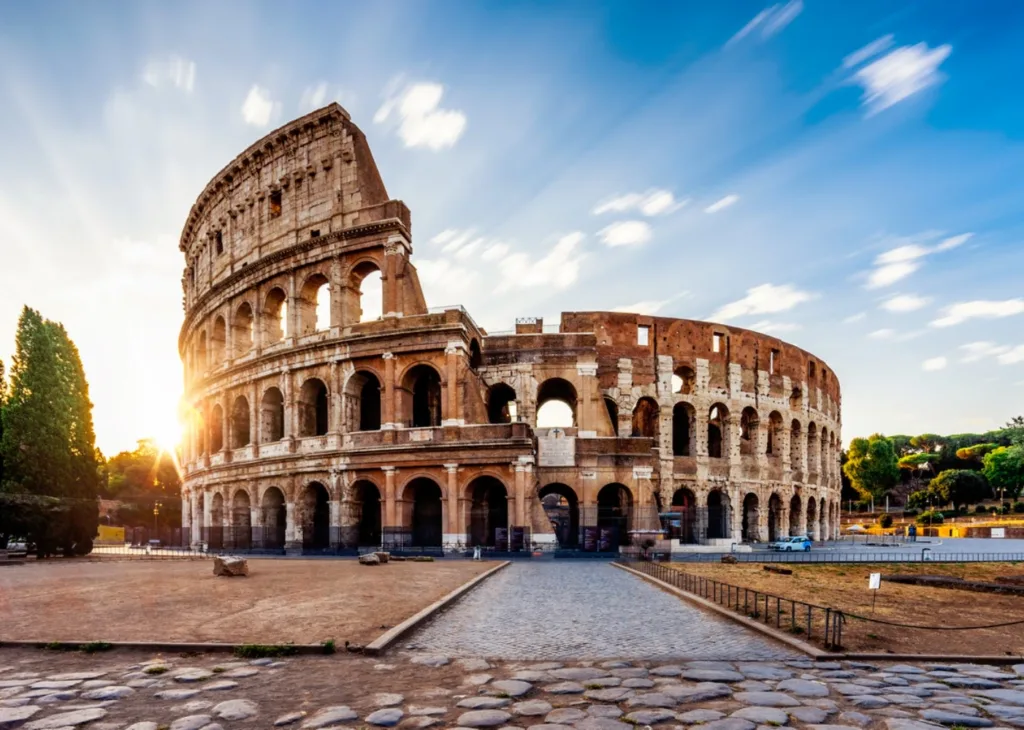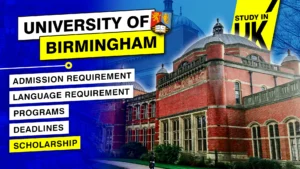Study In Italy
Why Study Italy?

1. Amazing World-Class Cities
Italy is a country with so many beautiful places to see and experience—but four of them are world-renowned for being among the top destinations for any traveler. The history of Rome goes back more than 2800 years and you’ll find evidence of its history at every turn. Once known as the “capital of the world” the city of Rome is home to incredible architecture, the famous catacombs, and even houses Vatican City—also known as the smallest country in the world!
Italy study abroad programs in Venice will find you enjoying the riverways and canals by boat, or walking the waterways (and the hundreds of bridges) on foot. You could do your studying with an espresso and gelato in the famous Piazza San Marco, or spend your afternoons learning about art during the famed Biennale. Venice is a major international center for education—so study abroad programs in Italy often have excellent options here.
The landscapes of Florence and Milan are separated by a two-hour train ride—and in completely different parts of the country—but both cities are major power-players in the areas of finance, fashion, commerce, architecture, history, and art. If you’re interested in Italian literature or painting, what could be better than studying in Italy in Florence—the birthplace of Dante Alighieri and Leonardo da Vinci? And if urban planning, architecture, or museum studies are your thing, you’d be hard-pressed to find a better place than Milan for your Italy study abroad program. Again, these are only four of the many places you might go—but just these cities alone could provide a lifetime of learning!
2. Free Education
School in Italy is free and mandatory until age sixteen—and as students progress through their grade levels, they participate in a specialized curriculum that steers them toward vocational programs or various levels of a traditional university. Once at the university level, the schools become even more specialized—and selective—with more than twenty of the programs being included in the top 500 universities in the world. The oldest continuously operating university in the world is found in Bologna—having had its doors open to students for over 930 years! If you’re interested in studying in Italy among the best and brightest, you will definitely find it here!
3. All That Culture (Art, Architecture, Music)
Italy is known for its contributions to Western culture—particularly in the areas of art, architecture, music, literature, and theater. If you want to study music, try Perugia—or any of the big four cities (Rome, Venice, Florence, and Milan). If you’re drawn to architecture, you can find the influences of Italy’s oldest northern city in Pauda—founded by the Trojans in 1183 BC and home to the university where Galileo once taught. Studying abroad in Italy puts you right in the middle of history—and any student can appreciate that!
7 Reasons to Study Abroad in Italy (Besides Pizza) (goabroad.com)
Contents
- Shortlist University
- Eligibility Criteria
- Important Dates and Deadlines
- Admission Process
- Verification of Educational Documents
- Scholarship
- Visa Appointment & Visa Checklist.
Step 1: Find University (Program)
The following are some websites where you can filter your desired universities.
- BS: https://www.bachelorsportal.com/ https://europe.graduateshotline.com/it.html
- MS: https://www.mastersportal.com/articles/1615/how-to-apply-to-an-international- university-in-italy-in-2019.html
- Ph.D./MS/BS: https://www.universitaly.it
Some top universities in Italy you should consider for your studies in Italy.
University of Rome Tor Vergata (www.uniroma2.it)
- Sapienza University of Rome (www.uniroma1.it)
- Siena university (www.unisi.it)
- Polytechnic di Torino (www.unito.it)
- University of Milan (www.unimi.it)
- University of Cassino (www.eng.unicas.it)
- Ca’ Foscari university Venezia (www.unive.it/english)
- University of Pisa (www.unipi.it)
- University of Florence (www.unifi.it)
If that doesn’t help, then you can search for other Universities on google by simply typing “Italian Public Universities”
Step 2: Check Your Eligibility
For Bachelor’s Minimum requirement is 60%.
For Master, the Minimum requirement is 2.5 CGPA.
Each university has its own eligibility criteria & admission requirements on its official website of the university.
Step 3: Important Dates and Deadlines
Italian universities have one intake a year for foreign students. Admission dates start from 5th January till 25th March
However better to Check the Date on the official site of the university.
Application Fee in Italy
The admission fee depends upon the university you apply for, However, the application fee may vary from 25 euros to 50 euros per application.
Documents for Admission Process
- Educational Docs
- Motivation Letter / SOP
- Passport Copy
- Language Proficiency Certificate/IELTS
- Letter of Recommendations
- CV
- Job Certificates (Optional)
STEP 4: Apply for Admission
You can select any university according to your need, choice, and course. Applying to a university is quite easy.
Almost all universities have a similar application process.
First: You must create an account on the university website
Second: Choose your desired program on that website
Third: Check the entry requirements of your chosen program
Fourth: Upload all the relevant documents.
After this process, you are likely to receive an e-mail regarding your application.
Step 4: Wait for Response from the University
We recommend applying to at least 2-3 universities for admission so that you will have a better chance of admission to Italy
Some universities require Admission tests and interviews (online). After this process based on your documents and tests and interviews, the university will send you an offer letter. The offer letter may be received within 30 days.
STEP 5: Verification of the Educational Documents
Depending upon the country where you are applying. The Italian embassy and universities require verification of the documents. In Pakistan, students must verify / her documents from the following educational bodies.
- IBCC (Inter Board Committee of Chairmen)
- HEC (Higher Education Commission)
- MOFA (Ministry of Foreign Affairs)
Recently, MOFA started the QR scanning system.
After attestation from the above bodies, you need to translate these documents to ITALIAN TRANSLATION. The translation is done from approved agencies; the embassy won’t accept your translations if you translate them from somewhere else.
Step 6: Scholarships in Italy
Italy offers two scholarships, and these scholarship amounts start from 4000 Euro to 5200 Euro per year.
1) Need-based Scholarship
Mostly Scholarships are needed based on any merit. Scholarships are available with different names so first check the university region and then apply for scholarships.
2) DSU Scholarship
Starts From the second year, you must have passed a minimum of 30 CFU which is at least 1 term/semester in your first-year exams. And you also required 3 documents which are
1) FRC
2) Income certificate
3) Assets Declaration
Step 7: Appointment in Embassy / Documents for the Embassy
This process is different for students from Baluchistan/Sindh and Punjab/KPK/Gilgit.
Students from the ICT, Punjab, KPK, and Gilgit.
Embassy issues appointments from April – to July. The web address of the Italian embassy is www.Islamabad.esteri.it. Once you apply for an appointment, the embassy will notify you of your email/phone number.
On the day of the appointment, you will have your interview and apply for DOV. Both will be done on the same day.
Embassy Process for Sindh/Baluchistan.
Apply for a visa from the Italian Consulate in Karachi. This process is in 2 steps. At first, students apply for DOV through Gerry. When DOV is received, then apply for the visa. once the student has received his/her admission letter.
Students must write an email to the Italian consulate in Karachi asking for the DOV (Declaration of Value) documents requirement. Consulate’s email address is:
[email protected]
- 1. Visa application form + Data form
- 2. CNIC copy
- 3. Admission letter/ Acceptance letter
- 4. D.O.V (Declaration of Value)
- 5. Attested Educational Documents + Copies + Translation
- 6. FORM A & FORM C (DOV forms)
- 7. Polio Certificate
- 8. IELTS (Minimum 6 Bands)
- 9. Ticket (one way towards Italy) – DUMMY TICKET
- 10. Hotel/Accommodation Proof (– DUMMY BOOKING. At least one month – It can be done through booking.com)
- 11. Insurance – The applicant should not obtain Travel Insurance for a single destination country but for the Schengen States. You are required to contract full Schengen Travel Insurance, covering – a minimum amount of 30,000.00 Euros (Thirty Thousand Euros). It will cost approx. Rs. 8,000-11,000/=PKR
- 12. Affidavit of Support
- 13. Sponsor Bank Statement and Account Maintenance Certificate (standard amount is 8000 Euro or Rs. 15 lac 3 months maintain)
- 14. Family Registration Certificate (issued from NADRA)
- 15. Original Passport & Photocopies
- 16. CV
- 17. Pictures (White background)
The Visa fee is approx. Rs. 14,200/–
They will call you most probably after 30-45 days to appear for an interview. On the day of the interview, take a fresh bank statement, not a minimum of 15 days old.
NOTE: This whole process will take 6, 7 months. So, don’t panic. Usually, students get their passports back from August to October with a visa sticker or rejection letter.
















